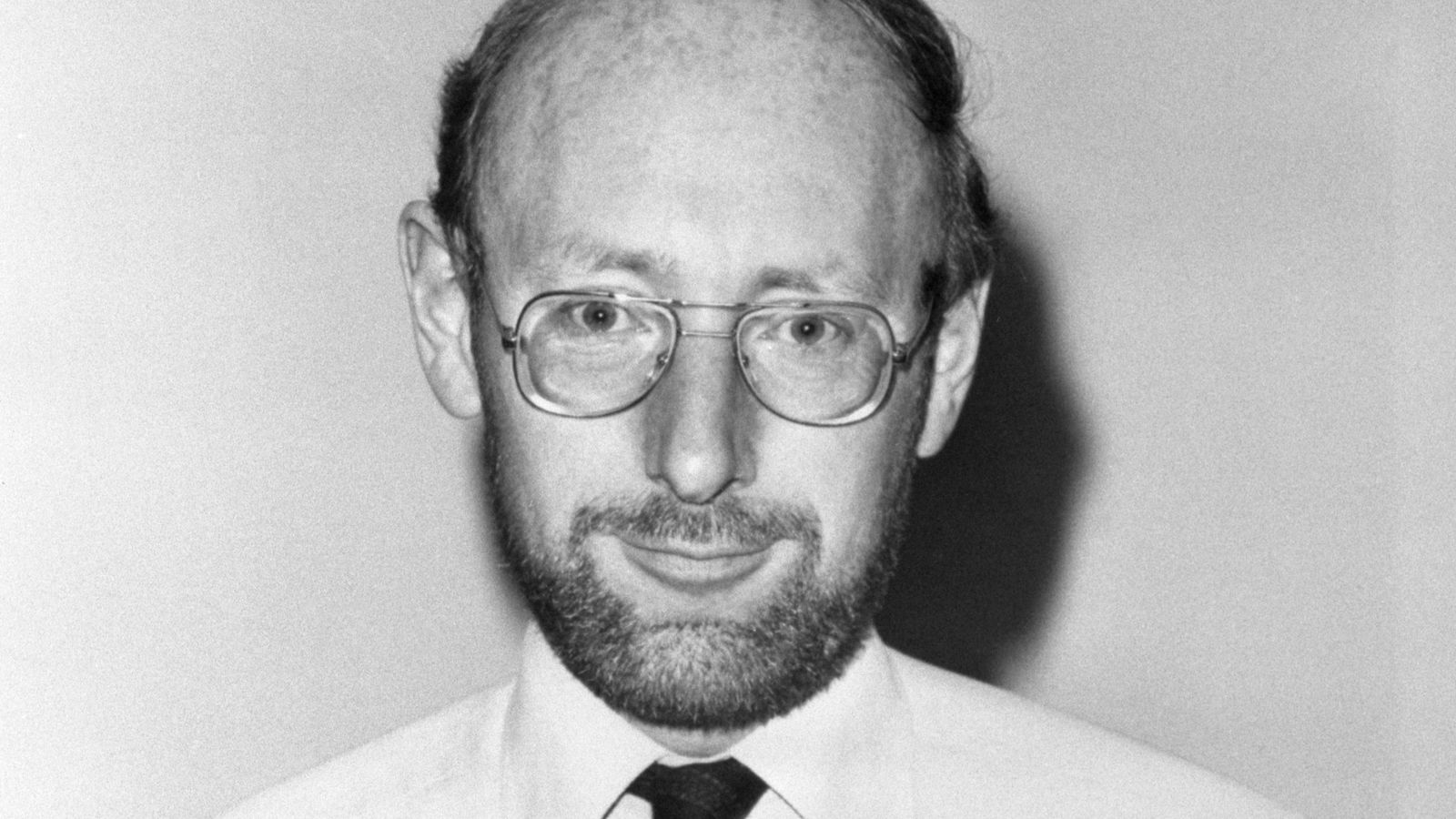Sir Clive Sinclair, who popularised the home computer and invented the pocket calculator, has died aged 81.
His daughter Belinda Sinclair told The Guardian that her father died at his London home on Thursday morning.
Ms Sinclair told the BBC that her father had cancer for more than a decade and was still working on inventions up until last week “because that was what he loved doing”.
She added: “He was inventive and imaginative and for him it was exciting and an adventure, it was his passion.”
Sir Clive launched the first affordable consumer computer in 1980, costing less than £100.
COVID-19: Vaccine booster programme begins as NHS starts giving third jabs
COVID news live: People most likely to have had long COVID revealed as booster campaign starts
COVID-19: UK records 26,911 new cases and 158 further deaths – with 8,339 patients in hospital
The multimillionaire entrepreneur’s company launched the ZX models in a decade where personal computer use boomed.
Sinclair became the first company in the world to sell more than a million computers, making Sir Clive’s surname a household name.
Speaking to The Guardian, his daughter said: “It was the ideas, the challenge, that he found exciting.
“He’d come up with an idea and say, ‘There’s no point in asking if someone wants it, because they can’t imagine it’.”
She added: “He was a rather amazing person. Of course, he was so clever and he was always interested in everything.
“My daughter and her husband are engineers so he’d be chatting engineering with them.”
A man of diverse interests, Sir Clive’s projects also saw him explore new technology in the worlds of television and cars.
One ill-fated initiative was the Sinclair C5 vehicle, an electric tricycle heralded as the future of eco-friendly transport but which turned out to be an expensive flop.
However, pre-owned C5 models are currently on sale on eBay for between £360 and £850.
Born in 1940, Sir Clive left school at the age of 17, becoming a technical journalist writing specialist manuals.
Aged 22, he formed Sinclair Radionics, his first company, making mail order radio kits, including the smallest transistor radio in the world.
Later in life he pioneered the pocket calculator and was dubbed an “electronics wizard”.
Other ventures included expansions into digital watches and the development of the world’s smallest television set.
It was with another company, Sinclair Research, that Sir Clive found his home computing successes as he faced off against international competition.
The ZX 81 computer launched in 1981 sold half a million and was followed up by more powerful models.
Film director Edgar Wright paid tribute to Sir Clive’s computing achievements on Twitter.
He tweeted: “For someone whose first glimpses of a brave new world were the terrifying graphics of 3D Monster Maze on the ZX81, I’d like to salute tech pioneer Sir Clive Sinclair.
“He made 21st Century dreams feel possible. Will bash away on the rubber keys of a Spectrum in your honour. RIP.”
Very sad to hear that Clive Sinclair has died. This man changed the course of my life. And arguably, the digital age for us in the UK started with the Sinclair ZX80, when thousands of kids learnt to code using 1k of RAM. For us, the Spectrum was like a Rolls Royce with 48k. pic.twitter.com/Nf050wftsk
Tom Watson, former deputy leader of the Labour Party, tweeted: “This man changed the course of my life.
“And arguably, the digital age for us in the UK started with the Sinclair ZX80, when thousands of kids learnt to code using 1k of RAM. For us, the Spectrum was like a Rolls Royce with 48k.”
Sir Clive was knighted in the birthday honours in 1983.
His daughter told the BBC that he was a devoted grandfather to her three children who had helped care for him in recent years.






















